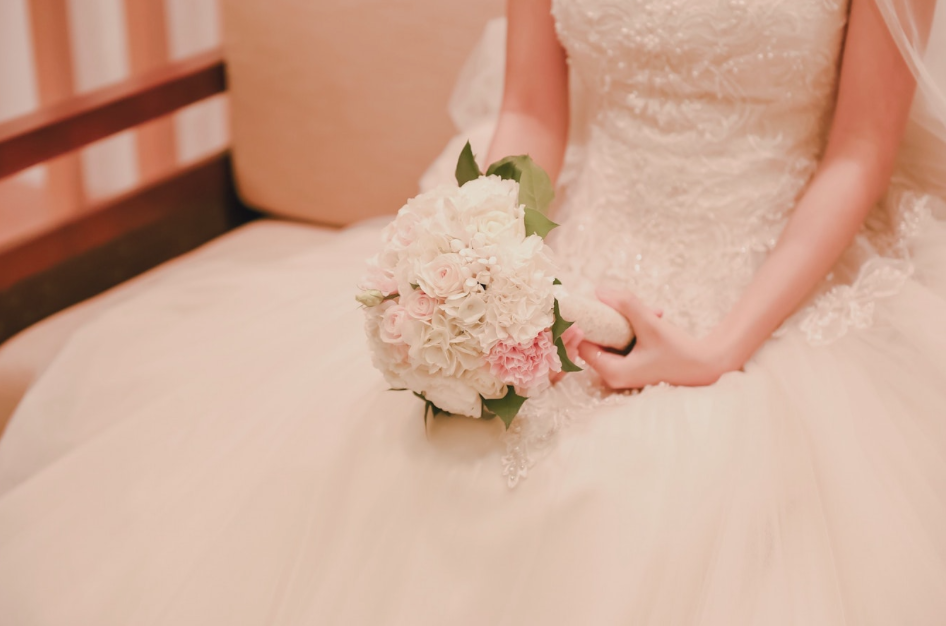HB 234: Child Marriages
by JENNIFER DOBNER
Four thousand, three hundred and ninety.
That’s how many Utah youths under age 18 were married between 2000 and 2010.
It’s a fraction of the estimated 248,000 — some as young as 12 — that married across the U.S. in the same time period, but it's enough to earn Utah a fifth place ranking among states with the most number of child marriages per capita, according to the advocacy group Unchained At Last. For Rep. Angela Romero, even one child marriage is too many.
“My concern is about protecting young women” the Salt Lake City Democrat to The Utah Bee. “Is this really the choice of the individual, or is there some fraud or coercion going on?”
In hopes of ending the practice, Romero has introduced House Bill 234, which would bar marriage for any person under the age of 18.
“We can’t vote until 18, we can’t get a loan …” she said. “So for me, when someone is a legal adult that’s when they should be able to get married.”
The House Judiciary Committee agreed in part on Monday, passing an amended version of HB234 on to the full House for a vote.
Under current Utah law, teens can marry as young as 15 if they have the consent of parents or a legal guardian and permission from a judge. At 16 and 17, only parental permission is required.
As proposed the amended version of HB234 would make 16 the legal age for marriage, but only with consent of a juvenile judge.
The committee’s resistance to raising the marriage age to 18 followed public comments from women who said that young marriages aren’t always unsuccessful and that people mature at different rates.
“Each person’s situation could be very uniquely different,” said Nicholeen Peck of the Worldwide Organization for Women. “Some might feel that getting married when they have a pregnancy that they didn’t plan on ahead of time is the morally right thing to do.”
Proponents of the bill included Heidi Clark, who was pregnant when she married at 17 and told the committee that she nearly lost her life when the union became violent.
“There can be no good reason for a child to marry. None at all,” Clark said. “It traps our daughters and sons in unhappy and unhealthy environments.”
Romero did not oppose the amendment.
Research has shown that underage marriage can have devastating and lasting affects on young girls, many of whom are forced into marriage by their parents or pressure from their religious community or culture.
According to UNICEF, young brides are more likely to experience domestic violence and are less likely to finish school. They often become mothers before 18 and are also more likely to die due to complications of pregnancy and child birth. Young marriages often end in divorce and leave women living in poverty.
"Child marriage — any union in which one spouse is under 18 — is legal in 48 states. Nineteen of those set no minimum age for marriage," Fraidy Reiss, founder of Unchained At Last said in a phone interview a week before the committee’s vote.
"Government can only do so much to solve the problem," Reiss said. "Historically, those bent on marrying off young children have always found a way to do so. But raising the minimum marriage to 18 does help," she said.
“If passed as is, (Romero’s) bill would solve this problem in Utah,” said Reiss, who was herself a victim of a child marriage. “This will mean the state is no longer complicit in any child marriages.”
Utah has gained some notoriety nationally for child marriages that have occurred among its polygamous religious groups. Those have prompted a handful of prosecutions and some changes to state law, including a 2017 bill that prohibits anyone under the age of 18 from entering a polygamous marriage.
Romero, who has spoken with women who have left polygamy, said she isn’t solely motivated by those stories. Rather, her interest in protecting all young women and changing the broader conversation about marriage and women as individuals, not property.
“I view this through a gender equity lens,” Romero said. “I want people to be able to make a decision and a choice and not be forced into marriage because of what is culturally appropriate.”
After Monday’s hearing, Romero called the amended bill a good first-step, but said she would not give up on raising Utah’s marriage age to 18. .
“I see my role in the legislature as providing a voice for women and other marginalized communities,” she said. “I don’t think it is fair to force anyone into a marriage and I want to make sure we give young women a choice.”

